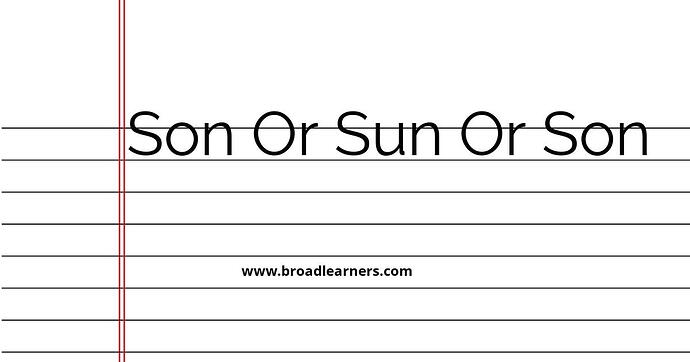'Son', 'sun', and 'son' are commonly confused words in English grammar. Understanding the difference between 'son', 'sun', and 'son' is important to use them correctly in written and spoken English.
'Son' is a noun that refers to a male child or offspring. It is used to indicate a familial relationship.
'Sun' is a noun that refers to the star at the center of our solar system. It is the source of light and heat for the Earth.
'Son' is a homophone of 'sun', which means they sound the same but have different meanings and spellings.
Let's take a closer look at the meanings and usage of 'son', 'sun', and 'son'.
| 'Son' | 'Sun' | 'Son' |
|---|---|---|
| The word 'son' is used to refer to a male child or offspring. | The word 'sun' is used to refer to the star at the center of our solar system. | The word 'son' is a homophone of 'sun', which means they sound the same but have different meanings and spellings. |
|
|
|
To remember the difference between 'son', 'sun', and 'son', it can be helpful to associate 'son' with the concept of a male child or offspring, 'sun' with the star that provides light and heat, and 'son' as a homophone of 'sun' that also refers to a male child or offspring.
Here are some examples of correct usage:
- I am proud of my son's achievements. (referring to a male child)
- Let's go to the beach and enjoy the warm sun. (referring to the star providing light and heat)
- His son's birthday is coming up. (indicating a familial relationship)
Remembering the correct usage of 'son', 'sun', and 'son' will improve your grammar and communication skills.
